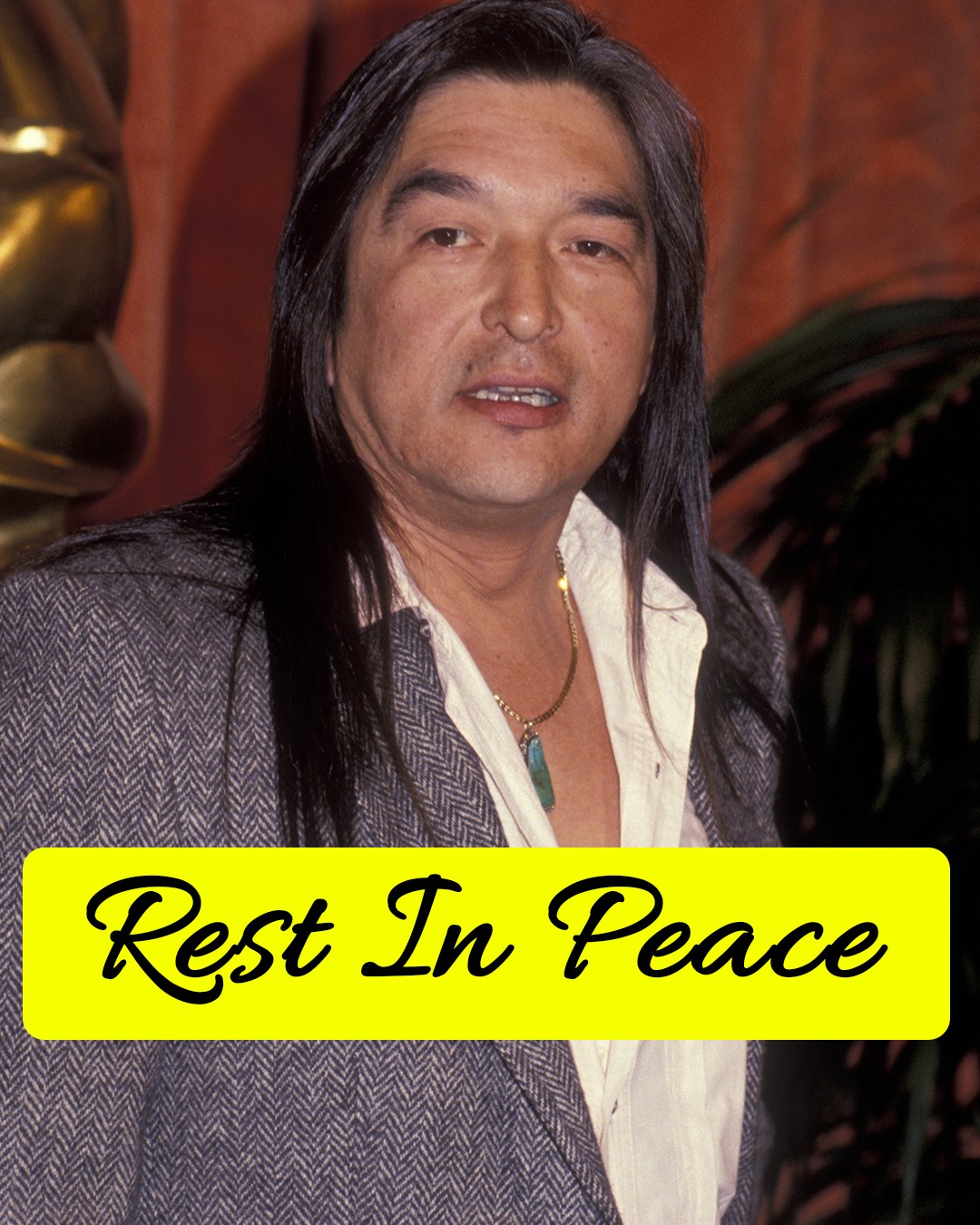With profound sadness, the world bids farewell to Graham Greene, the acclaimed Canadian actor whose career spanned more than four decades and left an unforgettable impact on Hollywood and on Indigenous representation in mainstream media. Greene—best remembered for his Academy Award–nominated performance as Kicking Bird in Dances with Wolves (1990)—passed away peacefully on September 1, 2025, at the age of 73 in Stratford, Ontario, after a long illness. At his side was his beloved wife, actress Hilary Blackmore.
His manager, Gerry Jordan, confirmed the news to CBC News, noting that Greene’s death was due to natural causes. While his passing marks the close of an era, the path he forged for Indigenous actors and his extraordinary body of work continue to inspire.
From Humble Beginnings to Hollywood Recognition
Born on June 22, 1952, in Ohsweken, Ontario, Greene was a proud member of the Oneida Nation of the Six Nations Reserve. Before pursuing acting, he worked in a variety of jobs—carpentry, welding, steelwork, even as a roadie for a rock band. These early experiences shaped the resilience and authenticity he later brought to his craft.
In the 1970s, Greene began to take acting seriously, starting with stage work in the United Kingdom. He often credited the discipline of theater for shaping his career. “The discipline of theatre is what I recommend to all actors,” he said in a 2012 interview. Those formative years became the foundation for a career that would bring him international acclaim.
Breakthrough in Dances with Wolves
Greene’s defining moment came in 1990 with his role as Kicking Bird, a wise and compassionate Lakota holy man, in Kevin Costner’s epic Dances with Wolves. His deeply moving performance earned him an Academy Award nomination for Best Supporting Actor, making him only the second Canadian Indigenous actor nominated for an Oscar, following Chief Dan George in 1971.
This recognition was not just a personal achievement but also a cultural milestone. At a time when Indigenous characters were often portrayed through harmful stereotypes, Greene brought dignity, humanity, and authenticity to the screen. He later recalled calling his wife Hilary the moment he heard of his nomination—before the congratulatory calls began pouring in.
A Career of Depth and Versatility
Following his breakthrough, Greene built an impressive and diverse career. He appeared in acclaimed films such as Thunderheart (1992), Die Hard with a Vengeance (1995), The Green Mile (1999), and Wind River (2017). On television, he lent his warmth and humor to series like Northern Exposure, Longmire, The Last of Us, and most recently Tulsa King. He also delivered a memorable performance in Reservation Dogs, a groundbreaking series that spotlighted Indigenous voices.
Greene’s versatility shone across drama, action, and comedy. Whether playing a spiritual guide, a father, or a lawman, he infused each role with a unique blend of quiet strength, humanity, and humor that made his characters unforgettable.
Humor, Humility, and Humanity
Despite his success, Greene never lost his humility. Known for his dry sense of humor, he often joked that acting seemed easy compared to his early labor jobs. “I stumbled into acting and thought, These people keep me in the shade, give me food and water, take me where I’m supposed to say lines, then take me back. Wow—this is the life of a dog!” His humor and warmth endeared him to colleagues and fans alike.
Actor Matty Cardarople, his co-star in Reservation Dogs, remembered Greene as “lighthearted, wise, hilarious, and someone who lived life with a light heart, no ego, not jaded, interested.” Many others in the industry have echoed these sentiments, describing Greene not only as an artist of great skill but also as a profoundly kind and generous human being.
Champion of Representation
As a proud Oneida actor, Greene’s legacy extends far beyond the screen. He shattered stereotypes and carved a path for Indigenous performers in Hollywood. His success allowed future generations to see themselves portrayed with depth and dignity. Greene often spoke about the importance of Indigenous voices telling their own stories, using his platform to push for inclusivity and authenticity in film and television.
A Legacy of Love and Family
Off-screen, Greene was a devoted husband, father, and grandfather. He is survived by his wife, Hilary Blackmore, their daughter, Lilly Lazare-Greene, and his grandson, Tarlo. In interviews, he frequently credited his family with keeping him grounded amid the chaos of the entertainment industry.
A Lasting Influence
Graham Greene’s passing is a profound loss to cinema, television, and the communities he represented so passionately. Yet his legacy will live on in every role he played, every barrier he broke, and every actor he inspired. He will be remembered not only as a gifted performer, but as a trailblazer whose presence expanded what was possible for Indigenous talent in Hollywood.
His journey—from the steel mills of Ontario to the Academy Awards stage—stands as a testament to resilience, authenticity, and the courage to embrace one’s identity. Greene’s performances resonate not just for their artistry, but for the truth and humanity he infused into them.
In honoring Graham Greene, we celebrate a life defined by storytelling, representation, love, humor, and groundbreaking achievement. Though he may have left this world, the roles he played and the paths he opened ensure that his spirit will live on.
